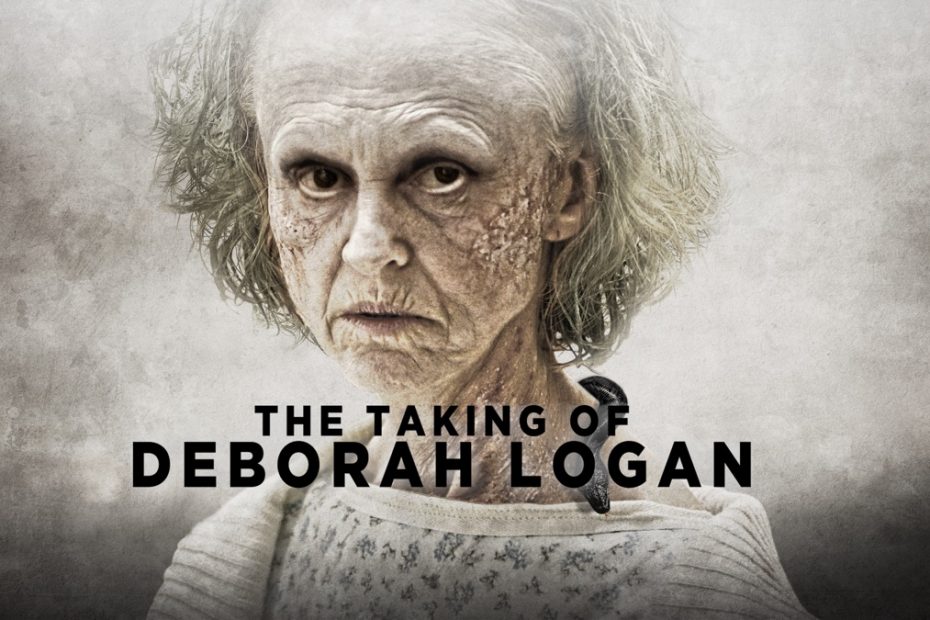Reviewed by Victoria Osborn
This is a pseudo-documentary with an extraordinary cast and crew that you will have a hard time ever forgetting.
It is always a risk to make a documentary type film, even if the events it captures are the truth. The risk is even greater when the film is not real. Not many can truly pull off a great pseudo-documentary, especially if the audience knows ahead of time that the story is fiction, unlike the most famous pseudo-documentary done by Orson Welles in 1938 (War of the Worlds).
We have seen many attempts at this over the years, however most of them fail phenomenally. “The Taking of Deborah Logan” written by Gavin Heffernan and Adam Robitel, directed by Adam Robitel is the exception. The pseudo-documentary starts out with eerie music playing, a flash of sentences on the screen explaining that this is a documentary about an Alzheimer’s patient. In between the flashes of information provided, we see through the lens of someone obviously in a vehicle as it travels to the location. Eerie music continues to play as they pull into the driveway of a very large home that seems a bit unkempt.
The music was organized by Haim Mazar. While there are not many incidents that the music is heard in the film, unlike other horrors where the music tends to give the jump scare away. This one had very few composed songs. Each however, were incredibly sinister and gave a scary/hopeless vibe. This vibe not only summed up Alzheimer’s disease, but the horror that unfolds in the story. Haim Mazar composed the songs perfectly.
As they pull up to the house a woman is seen running to them, excited and nervous that they are there. She displays all the classic signs of someone that is not used to being on camera. Carol Logan, played by Anne Ramsay (“A League of Their Own”,”Violet”), is an ordinary woman trying to take care of her mother Deborah Logan (Jill Larson,{“Shutter Island”, “The Young and the Restless”}) who was recently diagnosed with Alzheimer’s. Carol agreed to the documentary because they needed the money.
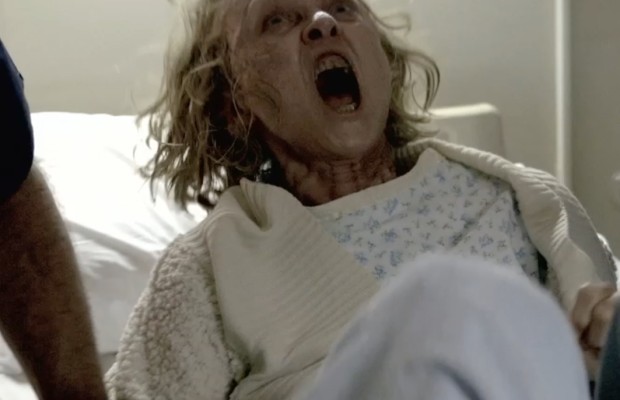
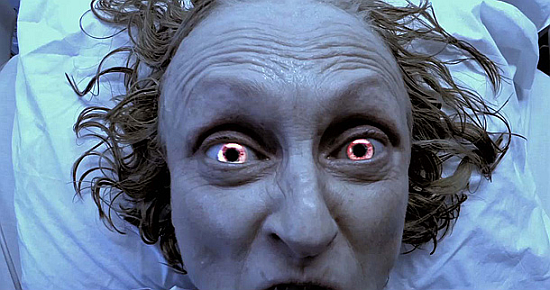
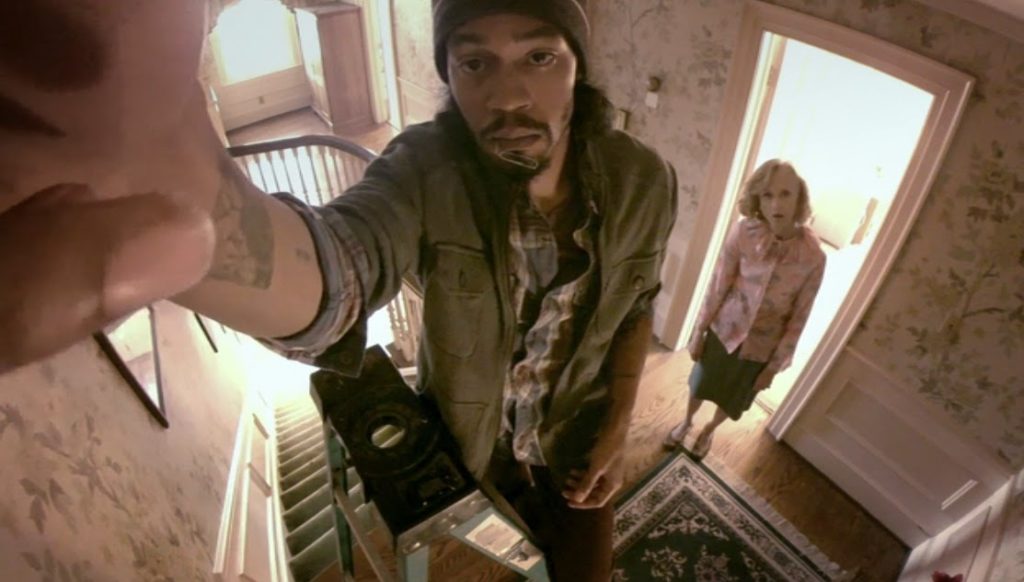
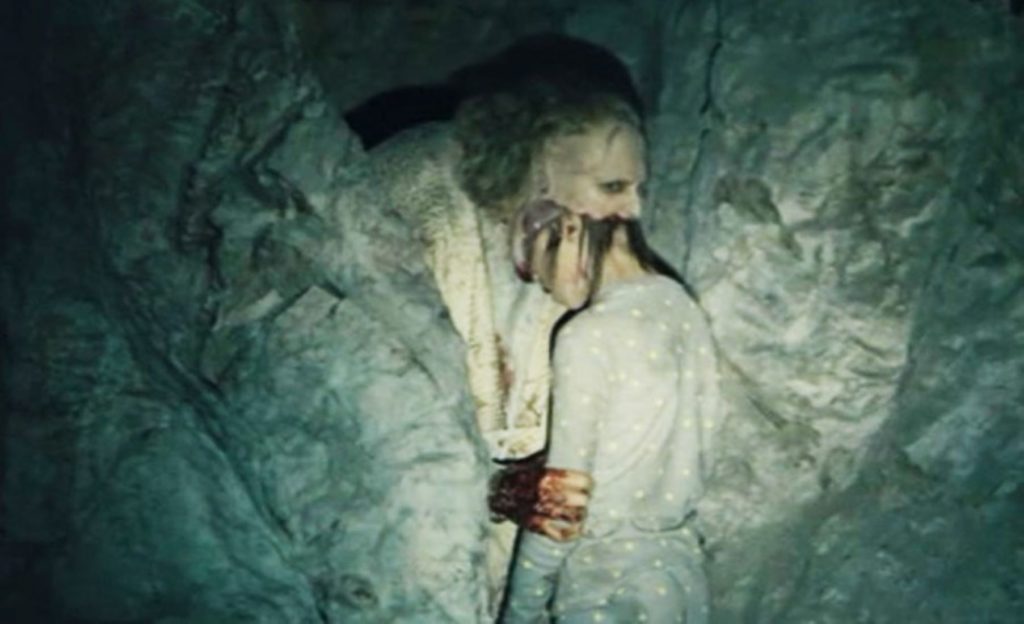
During the pre-film interview, which is caught on film, you witness Deborah starting to show doubt about doing the documentary. To help get Deborah to a good place mentally about the film Mia Medina (Michelle Ang {“Fear the Walking Dead: Flight 462”, “Xena: Warrior Princess”}) attempts to tell a backstory about her personal experience with alzheimers and states “it is not just a grade to me”, however Deborah decides it is not a good fit. This reigns true to the symptoms of Alzheimers. The simple exchange with Mia and Deborah is a very common caregiver/ patient exchange with early stages of Alzheimer’s and was brilliantly added to the story as a means to help with the believability of the film. This less than 2 minutes of filming truly sealed the interest of the audience as you watched. You are right away left with the impression that Deborah is a very strong, independent, stubborn person and this will be a fight. She is very proud and does not want to be the “butt of anyone’s joke” but for the purpose of education, she might be inclined to be interested… maybe. However, the daughter knows they need the money and this is a desperate situation, that she is trying to get her mother to understand.
Time passes and they try again, this time with success. As they enter the home one of the camera crew Gavin (Brett Gentile {“Captain America: Civil War”, “We’re the Millers”}) keeps touching things, making the daughter a bit on edge. Again, a little nugget of authenticity as you are able to actually visualize someone coming into a house doing just that. Later on you witness Carol whispering to Gavin to tell her mother ‘thank you’.
Throughout the film you will find little nuggets like that to keep the story as authentic as possible. The realism of true life. It allows the viewers to get the feel that this is a real documentary. From the shaking of the camera at times, to the wrong lighting and the missed opportunities. You are being taken along this journey with the camera crew and the family. There are times where you see Deborah forget some detail of a story she is telling or forget the name of something or getting unusually upset about something that seemed minute. This is very accurate to the disease of Alzheimer’s.
The documentary offers some education to what Alzheimer’s is deriving from actual education available on the subject. Showing multiple people in various stages of the disease before focusing on the interview portion. Carol and Deborah are seen sitting in front of the camera to speak of “what was the clue that something was wrong”. This exchange is chaotic as Deborah insists Carol look a certain way and that her occasional senior moment was “no big deal” followed by a photo labeled for insurance of a date 3 years prior showing immense destruction. This photo is a realistic situation that can occur with an Alzheimer’s patient if left to their own care, and it displays how very dangerous Deborah’s situation truly is.
Home videos of who Deborah was prior to the diagnoses shows that she was a very strong independent woman that raised her daughter on her own and she took on a business that is now obsolete as a means to provide. This also sets up the storyline for the possibility that what is happening to Deborah Logan may not all be because of her dementia.. Or is it?
A minor yet powerful character in this film is Harris Sredl (Ryan Cutrona {“Shark Attack 3: Megalodon”,”Sons of Anarchy”}). He is Deborah’s best friend and neighbor and as time goes on, he seems a bit overly protective of her. Is this just the concerning act of one that loves her or is he worried that the crew will uncover his deadly secret?
Another small but incredibly important role in this film was played by the very talented Julianne Taylor (“Why Are We Fat?”) in her debuting role as the young cancer patient Cara. You do not see much of her in this film, but she will leave a lasting impression on you. She pulled off both innocence and sinister in this role with a type of expertise that you do not always see even in veteran actors.
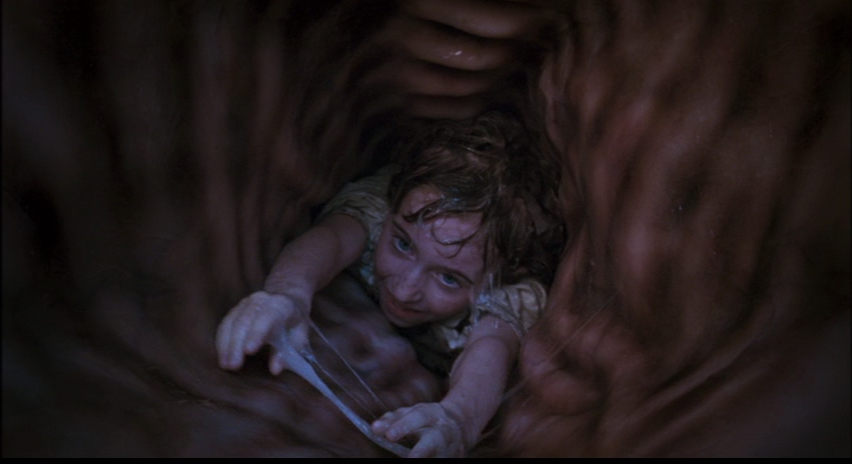
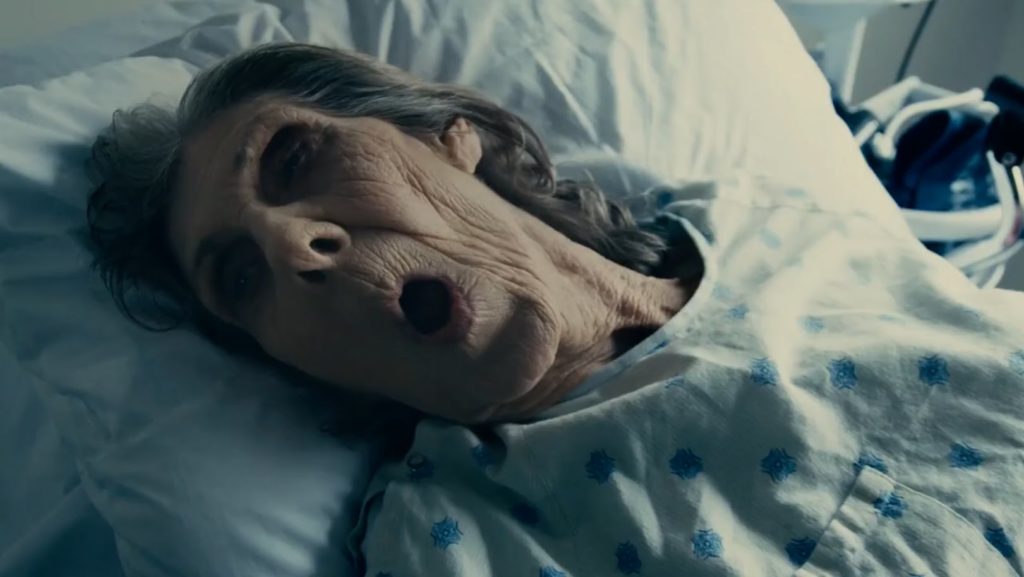
Twelve minutes into the film and you already have your first deadly turn of events, and folks… it doesn’t stop there! This film has you at the edge of your seat from that point on until the very end, with many jump scares, startles and terrifying moments as Deborah’s decline continues with deadly consequences. The Cinematography done by Andrew Huebscher flawlessly aided the belief that this is a true story. The darkness that he allowed in some areas of the film made it seem like you are really looking through the lens of a simple handheld camera and that is a true credit to his abilities. The darkness in those times drew you in as a viewer instead of causing you frustration of not being able to see what is going on, like in other films. These spots of darkness were very skillfully placed to have the appearance of an amateur. The viewing audience doesn’t know if it is preparing for a jumpscare or if it is just because the camera is a handheld. Therefore the jump scares that come, and they do come, are completely without warning. This film will leave you questioning the supernatural, mortality, and the aspects of how powerful our minds truly are. What can happen if your brain begins to die? Will we harm those we love? Will we reveal long buried secrets? Maybe there are some things that are better left forgotten.

